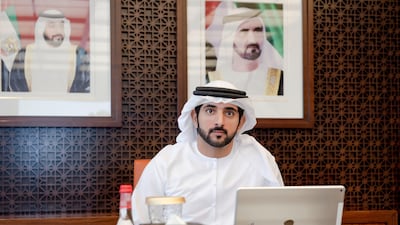Non-Emirati employees working in Dubai’s government and public sector can join a new savings pension plan, Sheikh Hamdan bin Mohammed, Crown Prince of Dubai, said on Wednesday.
The system will be in addition to the existing gratuity scheme, under which staff receive a lump sum when they leave their job.
It could be expanded to the private sector on a voluntary basis only, a statement on Sheikh Hamdan’s website said.
The project will be introduced in phases.
A variety of investment plans will be offered, some of which will be Sharia-compliant. Capital protection will be ensured for employees who do not wish to invest.
Sheikh Hamdan said the fund would make Dubai more attractive to people from around the world.
“We are keen to provide all workers in the government sector with everything that guarantees them and their families a decent life,” he said.
“We implement everything that suits Dubai’s aspirations for its government employees in terms of privileges and guarantees that guarantee them their rights and contribute to its development.”
The board of trustees will supervise the fund with the help of Dubai International Financial Centre and in partnership with international institutions that provide attractive and safe investment opportunities.
A committee will be formed to supervise the project.
DIFC was the first body in the UAE to overhaul the gratuity system – a defined, end-of-service benefit to which all resident employees are entitled after completing at least one year of service. It introduced the Dews plan in February 2020.
Employers in the free zone are required to contribute an amount equal to 5.83 per cent or 8.33 per cent of an employee’s wage, depending on their length of service, monthly to a fund administered by a trust. Employees can opt to make additional voluntary contributions to the plan.
Last year, AXA Green Crescent Insurance Company introduced a workplace savings plan to help UAE employees save for retirement. The Employee Secure Saver plan is a savings vehicle similar to those available globally, the insurer said in April.
End-of-service gratuities are payments legally due to employees upon leaving their roles, subject to satisfying certain conditions set out in the UAE Labour Law.
The sum depends on the employee’s length of service and their most recent wage, typically a basic salary.
Employers are obliged to pay these sums to their eligible employees upon, or soon after, their departure. The law indicates that the gratuity would be based on the normal wage most recently due to the employee.
The law states that, for the purpose of calculating the benefit, any money paid to the employee in kind is excluded. This means that money paid in lieu of flights, housing or education, for instance, would not be included.
























































































